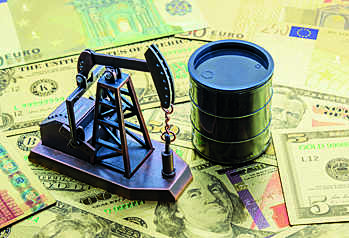DHAKA: Bangladesh is struggling to pay for imported fuel because of a dollar shortage, letters reviewed by Reuters show, with the state petroleum company owing over $300 million as it faces an “alarming decrease in fuel reserves”. All import and marketing of fuel in the country of nearly 170 million people is controlled by Bangladesh Petroleum Corp, which has asked the government to permit domestic commercial banks to settle dues with India in rupees.
The nation’s dollar reserves have shrunk more than a third since Russia’s invasion of Ukraine in February last year to stand at a seven-year low of about $30.2 billion by May 17. Heavily reliant on energy imports, Bangladesh is grappling with power cuts resulting from a fuel shortage that have hurt its exports-oriented garments industry.
“Due to a shortage of foreign currency/dollars in the domestic market and the central bank not meeting demand for US dollars, commercial banks are unable to pay for imports on time,” BPC told the power ministry in a May 9 letter. That followed a warning in a letter in April that said, “If it’s not possible to import fuel according to the import schedule prepared for May, supply may be disrupted throughout the country with an alarming decrease in fuel reserves.”
The ministry, BPC and the central bank did not respond to calls to seek comment. BPC imports 500,000 tonnes of refined oil and 100,000 tonnes of crude oil every month. The April letter said many fuel suppliers had either sent fewer cargoes than scheduled or threatened to halt supplies. Creditors included Unipec, the trading arm of China’s state-owned Sinopec, Vitol, ENOC, Indian Oil Corp, PetroChina and Indonesia’s BSP, it said. “Several companies are threatening to stop supplies while others are sending fewer cargoes than planned,” said a BPC source.
The nation’s dollar reserves have shrunk more than a third since Russia’s invasion of Ukraine in February last year to stand at a seven-year low of about $30.2 billion by May 17. Heavily reliant on energy imports, Bangladesh is grappling with power cuts resulting from a fuel shortage that have hurt its exports-oriented garments industry.
“Due to a shortage of foreign currency/dollars in the domestic market and the central bank not meeting demand for US dollars, commercial banks are unable to pay for imports on time,” BPC told the power ministry in a May 9 letter. That followed a warning in a letter in April that said, “If it’s not possible to import fuel according to the import schedule prepared for May, supply may be disrupted throughout the country with an alarming decrease in fuel reserves.”
The ministry, BPC and the central bank did not respond to calls to seek comment. BPC imports 500,000 tonnes of refined oil and 100,000 tonnes of crude oil every month. The April letter said many fuel suppliers had either sent fewer cargoes than scheduled or threatened to halt supplies. Creditors included Unipec, the trading arm of China’s state-owned Sinopec, Vitol, ENOC, Indian Oil Corp, PetroChina and Indonesia’s BSP, it said. “Several companies are threatening to stop supplies while others are sending fewer cargoes than planned,” said a BPC source.
